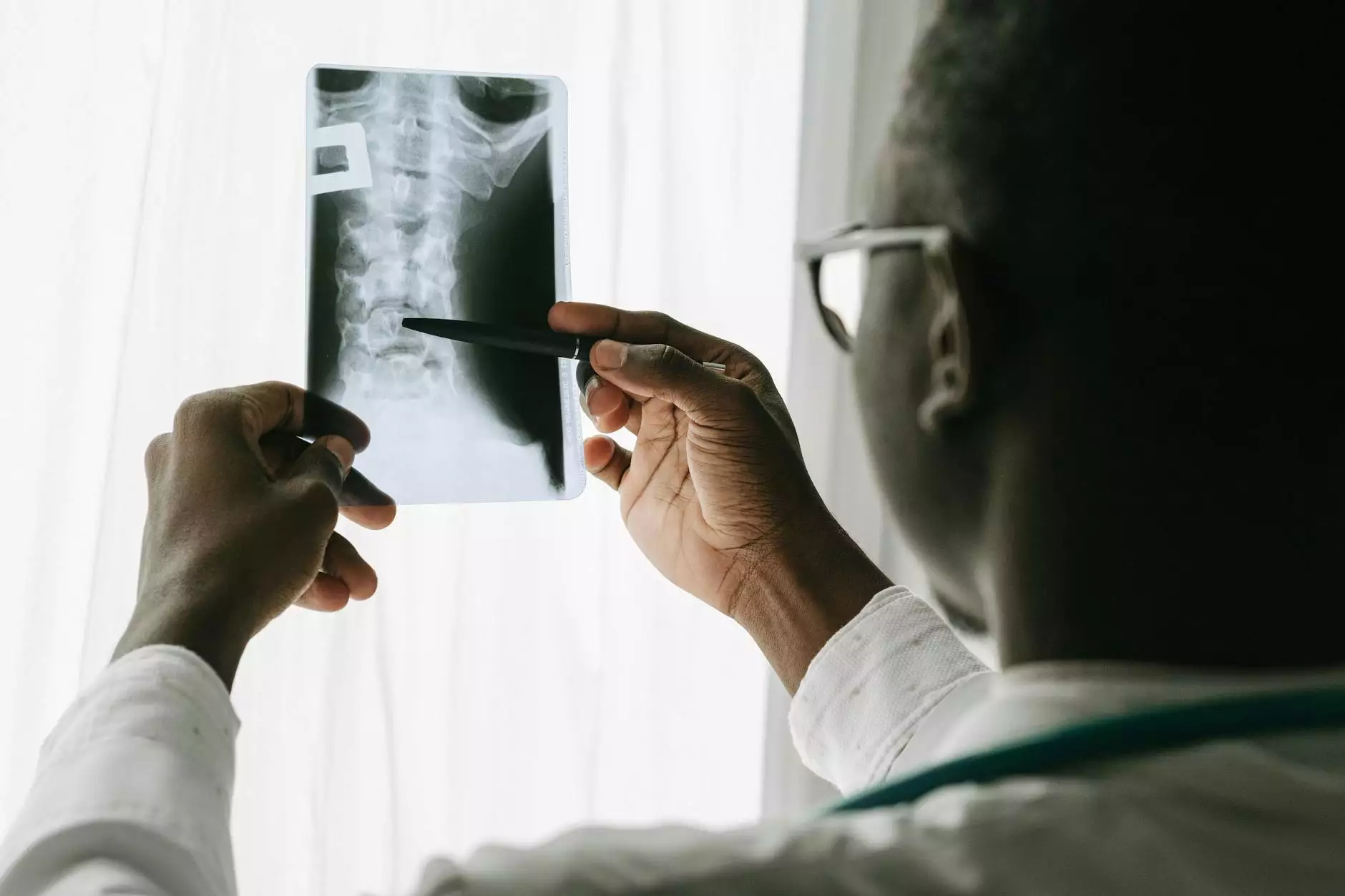The Vital Role of Lung CT Scans in Health & Medical Diagnostics

In today's fast-paced medical landscape, the lung CT scan emerges as a crucial tool for diagnosing various pulmonary conditions. From early lung cancer detection to monitoring chronic diseases, the significance of a lung CT scan cannot be overstated. This article delves into the intricacies of lung CT scans, highlighting their benefits, understanding the procedure, and exploring their role in health & medical, sports medicine, and physical therapy.
What is a Lung CT Scan?
A lung CT scan, or computed tomography scan, provides a detailed view of the lungs using X-ray images. Unlike standard X-rays, which capture limited information, a CT scan offers cross-sectional images that depict the lungs in more detail. This allows healthcare professionals to view structures in the lungs with high clarity and accuracy, making it invaluable for diagnosing various conditions.
Who Should Undergo a Lung CT Scan?
Lung CT scans are recommended for individuals presenting symptoms such as:
- Chronic cough
- Blood in sputum
- Unexplained weight loss
- Chest pain or difficulty breathing
- History of smoking or exposure to harmful substances
Key Benefits of Lung CT Scans
The myriad of advantages that a lung CT scan provides are crucial for early detection and effective treatment:
1. Early Detection of Lung Cancer
One of the most significant benefits of lung CT scans is their ability to detect lung cancer at an early stage. Studies have shown that early-stage lung cancer can be significantly curable if treated promptly. The detailed imaging allows for the identification of nodules or abnormalities that may otherwise be missed.
2. Evaluation of Chronic Lung Diseases
Chronic lung disorders, such as COPD (Chronic Obstructive Pulmonary Disease), emphysema, and pulmonary fibrosis, require periodic monitoring. A lung CT scan provides critical information regarding the progression of these diseases, aiding healthcare providers in adjusting treatment plans accordingly.
3. Guidance for Surgical Procedures
For patients diagnosed with lung cancer or other serious lung conditions, a CT scan can assist in planning surgical interventions. The detailed maps of lung anatomy that CT scans provide are essential for surgeons to make informed decisions about the most effective surgical approaches.
4. Assessing Lung Infections and Inflammations
Lung infections, including pneumonia and tuberculosis, can be evaluated effectively through CT scans. Radiologists can examine the extent of these infections, helping to determine the appropriate course of management, including hospitalization or outpatient treatment.
The Procedure: What to Expect During a Lung CT Scan
The procedure for undergoing a lung CT scan is relatively simple and quick, making it an efficient tool in modern diagnostics.
Preparation
Preparation for a lung CT scan usually does not require extensive measures. Patients are advised to:
- Avoid eating or drinking for a few hours before the scan (if a contrast material is used).
- Wear comfortable clothing; you may need to change into a hospital gown.
- Inform the medical team about any allergies, especially to iodine, as contrast dye might be used.
The Scanning Process
During the scan, patients lie on a table which moves into the CT machine, a donut-shaped device. The machine rotates around the body, taking multiple X-ray images. Patients may need to hold their breath for a few seconds during the imaging. The entire process typically lasts less than 30 minutes.
Post-Scan Expectations
Post-scan, there are very few restrictions. If contrast material is used, patients may be advised to stay hydrated to help flush it out of their system. Results are usually available to the healthcare provider within a few days, who will then discuss the findings.
The Intersection of Lung CT Scans with Sports Medicine
In the realm of sports medicine, lung CT scans can play an essential role in evaluating respiratory fitness and identifying conditions that may impact an athlete's performance.
1. Assessing Respiratory Conditions
For athletes presenting respiratory symptoms such as coughing or shortness of breath, a lung CT scan may provide insight into underlying issues, detecting conditions like exercise-induced asthma, pulmonary embolism, or other pathologies.
2. Monitoring Athletes Post-Injury
In cases of traumatic injuries, especially those involving the thoracic area, CT scans may be used to monitor healing and ensure that no complications arise that could affect breathing and overall recovery.
Lung CT Scans in Physical Therapy
In physical therapy, understanding the impact of lung health on overall bodily function is paramount. Physical therapists often work with patients managing chronic lung conditions through:
1. Tailored Rehabilitation Programs
Sensitive to the challenges posed by pulmonary conditions, physical therapists design rehabilitation regimens tailored to enhance lung function, increase exercise tolerance, and improve quality of life for patients diagnosed through lung CT scans.
2. Education and Awareness
Physical therapists also educate patients on the importance of maintaining lung health, promoting exercises that improve respiratory function and reduce the risk of infections post-recovery.
Conclusion: Lung CT Scans as a Cornerstone of Modern Healthcare
The comprehensive understanding that lung CT scans offer is invaluable in the fields of health and medical diagnostics, sports medicine, and physical therapy. Their ability to identify conditions early and facilitate precise treatment prevents complications and enhances patient outcomes. As technology continues to advance, the role of lung CT scans will undoubtedly expand, paving the way for even greater innovations in managing lung health.
Take Action: Prioritize Your Lung Health
If you experience any respiratory symptoms or have risk factors associated with lung diseases, consider discussing the possibility of a lung CT scan with your healthcare provider. Early diagnosis and effective treatment can significantly improve your life quality and outcomes.
© 2023 Hello Physio. All rights reserved.



